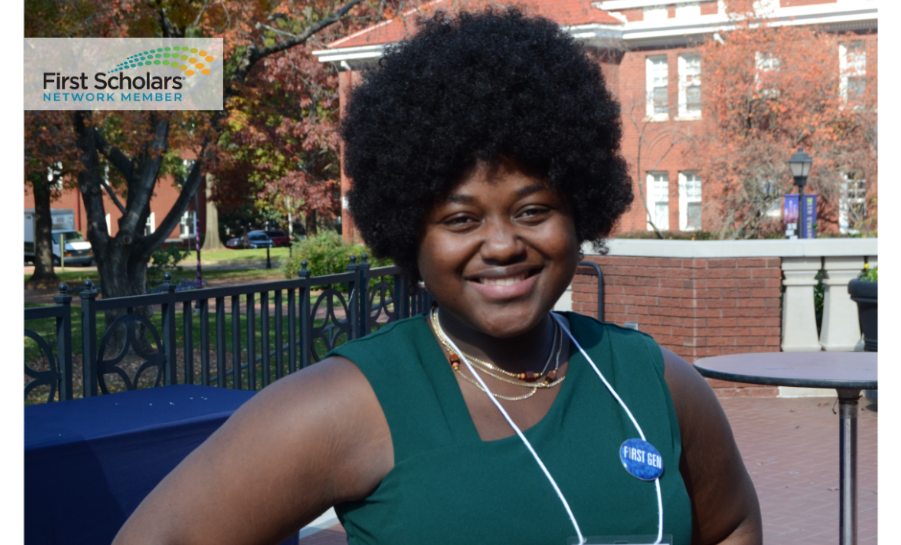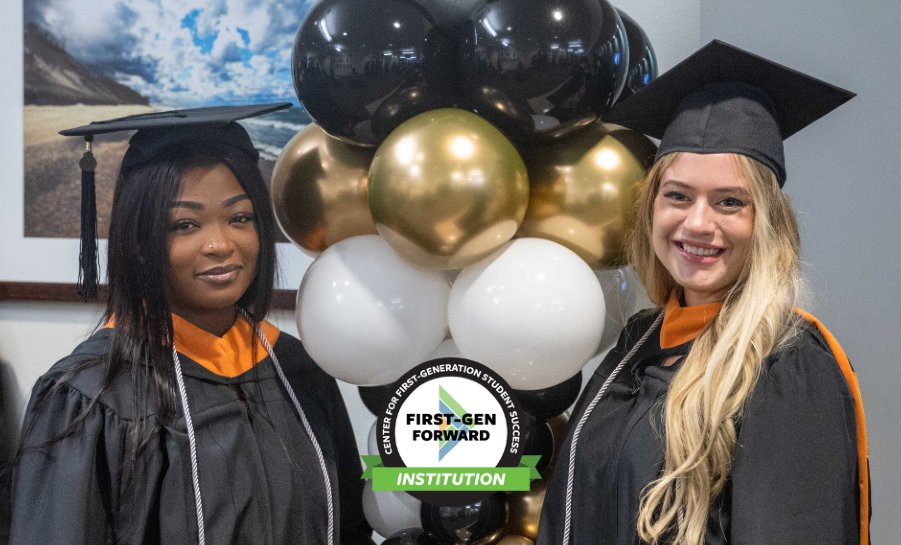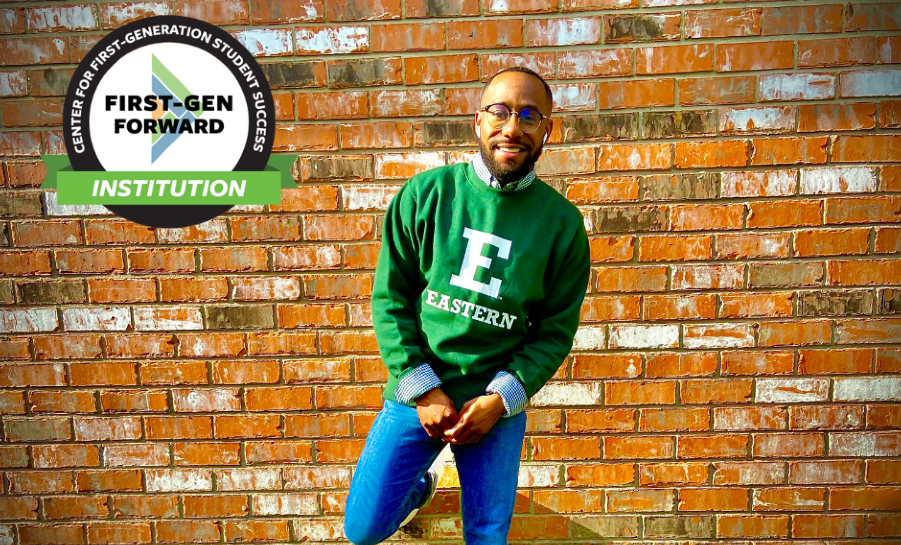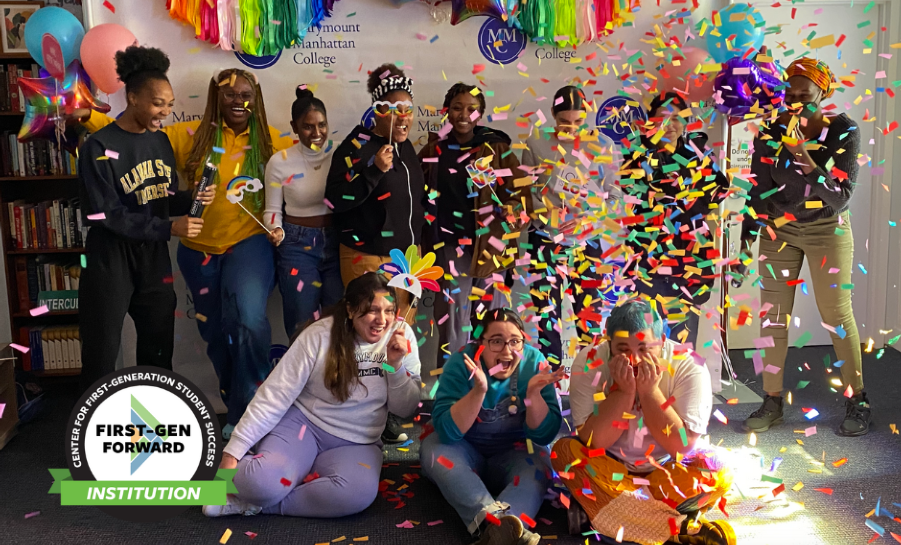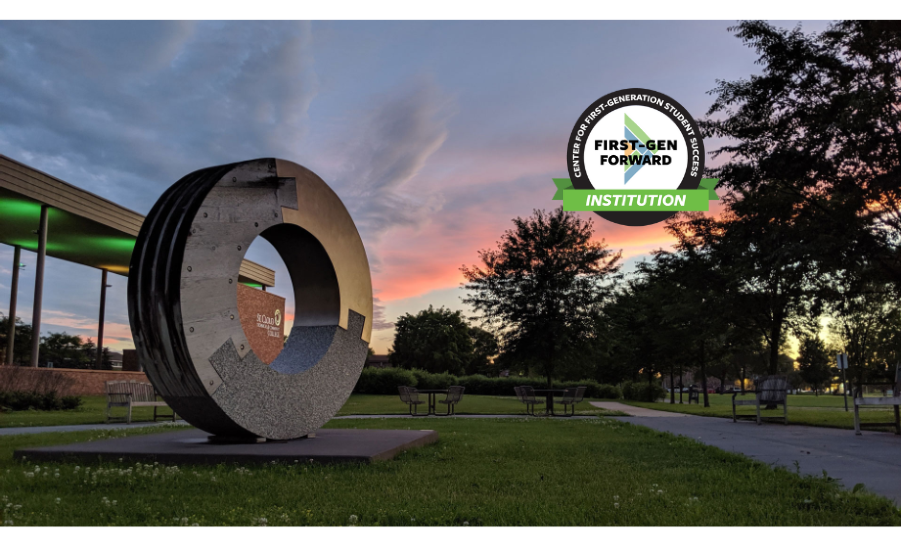Proud to be F1RST
Diana Rowe, Georgia Gwinnett College / FirstGen Forward / October 19, 2022
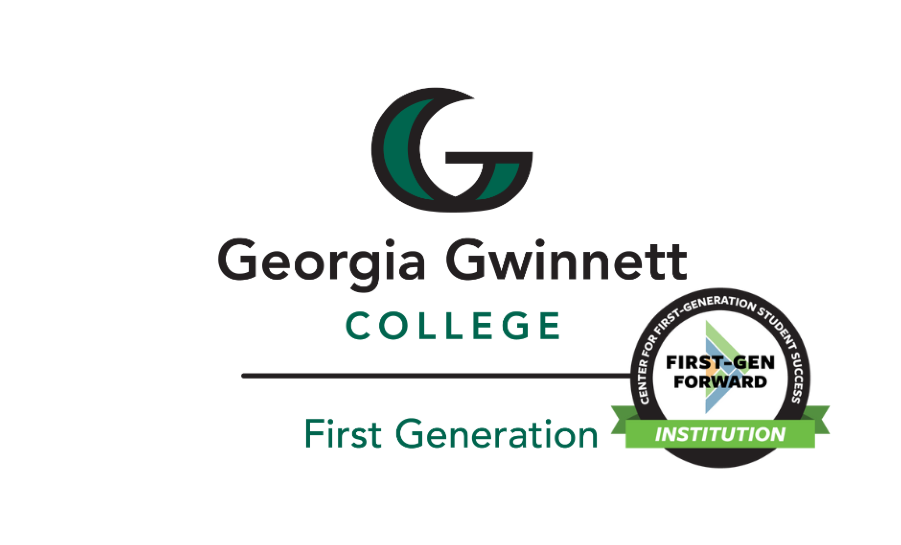
Georgia Gwinnett College (GGC) held its inaugural first-gen student talking circle event September 13, 2022. The purpose of a talking circle is to explore a particular topic from different perspectives and to allow student voices to be respectfully heard. Staff from the Student Success Advising Center and faculty collaborated on this event to learn about students’ college experience and to hear how we can better support our first-gen students. The goal of this event was to help students think deeply about their college experiences and then share their insights about what’s going well, and what we as an institution can improve to support their success.
We held the event in the Student Center lounge area, a great open space with windows viewing the main area of campus. We chose the location because it is in the center of campus and feels like it is part of the community. People walking by the area are able to see inside and often curious about events in the space and stop in to participate. This was an informal event with couches and chairs situated in a circle to encourage participation and promote community, especially when there’s food. We provided pizza, juice, and coolies.
One of our faculty partners moderated the conversation. After laying the moderator ground rules for the conversation, participants introduced themselves. There was a diverse group of students who represented various ethnicities, ages, classifications, and many other intersecting identities. All students identified as first-generation, although some of the participants didn’t know they were first-gen until after joining the conversation.
The following guiding questions were used as discussion prompts:
• What experiences have led to you identifying as a first-generation college student?
• From your perspective, what benefits does GGC offer to students who identify as first-generation college students?
• From your perspective, what opportunities for GGC campus enhancements would be beneficial to first-generation students?
• What type of circle topics would you like to have?
The event provided a safe, non-judgmental platform for first-gen student voices to be heard. Students candidly shared many of the benefits GGC provides to the first-gen student community, including affordability (tuition and food), small classroom sizes, and clean bathrooms. Students also shared ways the college could improve to support first-gen students. They suggested comments such as expanding orientation to include sessions focused on first-gen students, FAFSA assistance for high school students and for parents who do not speak English, and more events related to career and majors. Students also expressed that they would like to see more Q & A type sessions that allow them to learn about specific topics, and a semester check-in session where they are able to share how things are going and learn about relevant resources. Additional future talking circles of interest included strategies for success sessions, career and major exploration, and a session to involve parents as conversational partners.
The event provided a safe, non-judgmental platform for first-gen student voices to be heard.
A follow up talking circle is planned in November during first-gen week. The session will involve end of semester check-in, discussing campus resources, and looking ahead to the next semester. This event provided useful information that will inform future planning for programs and practices that support first-gen students. More importantly, students appeared to have developed a sense of community within the group, which will support their persistence and progress.
